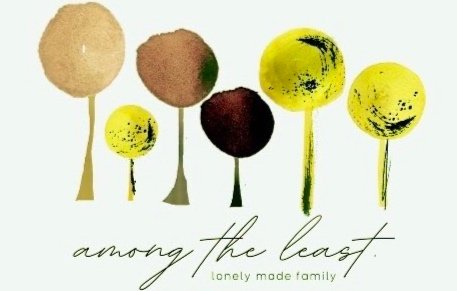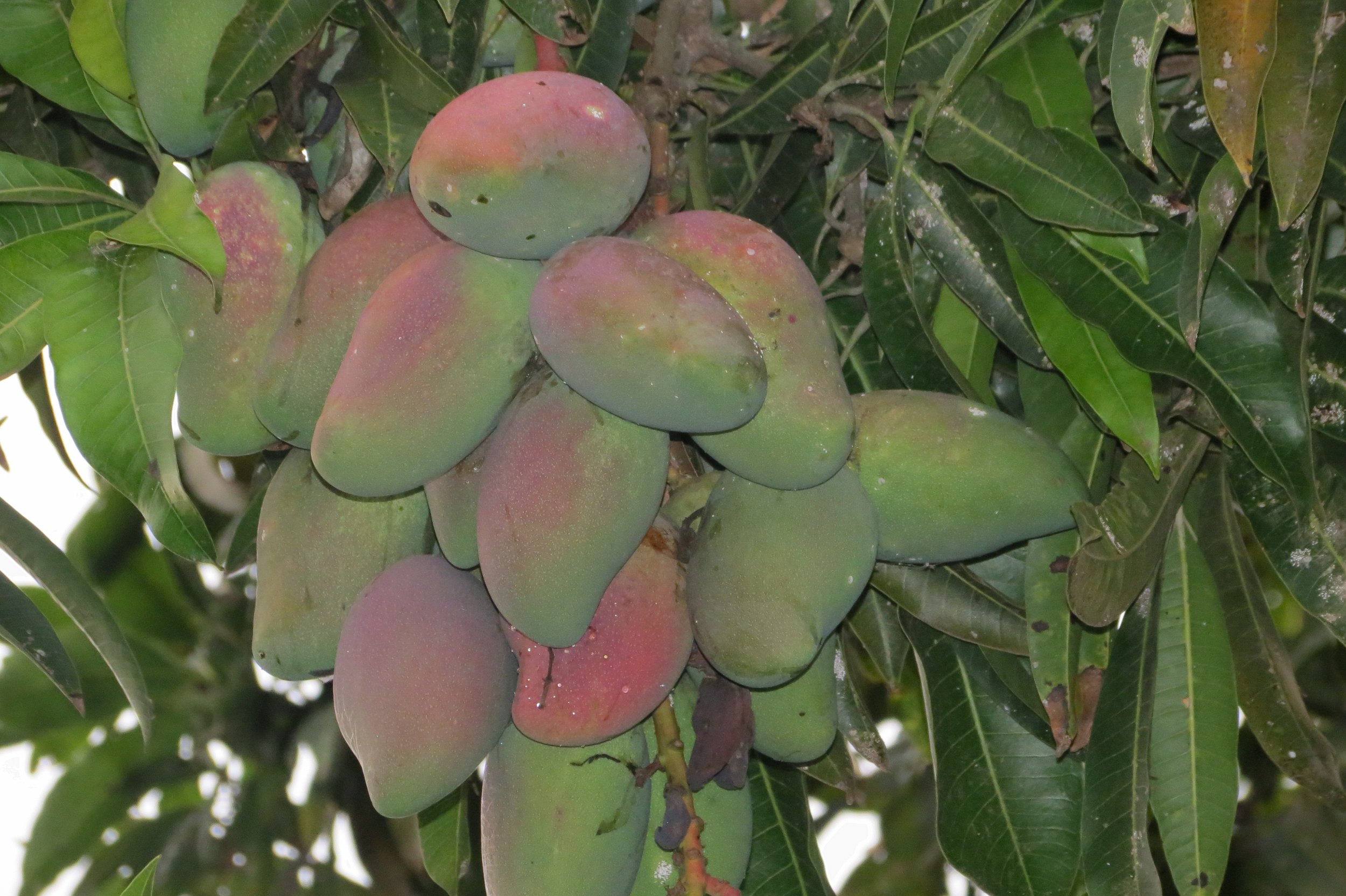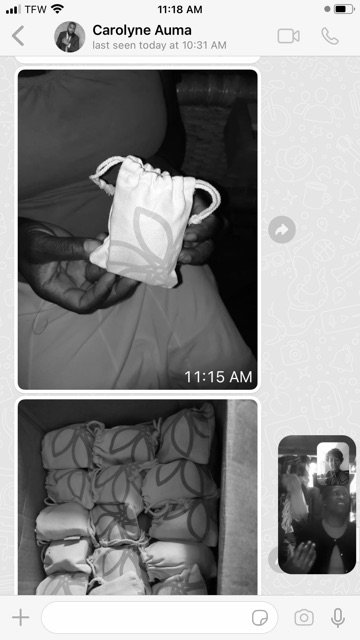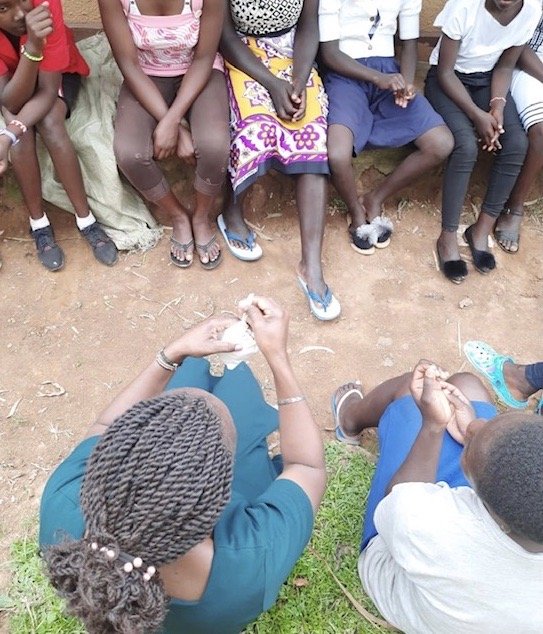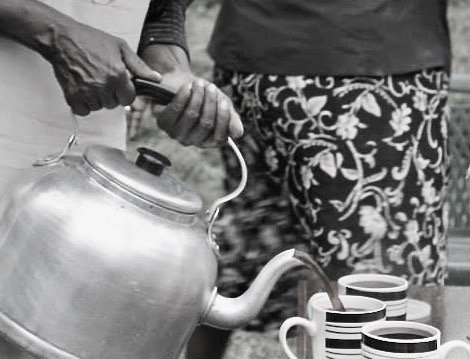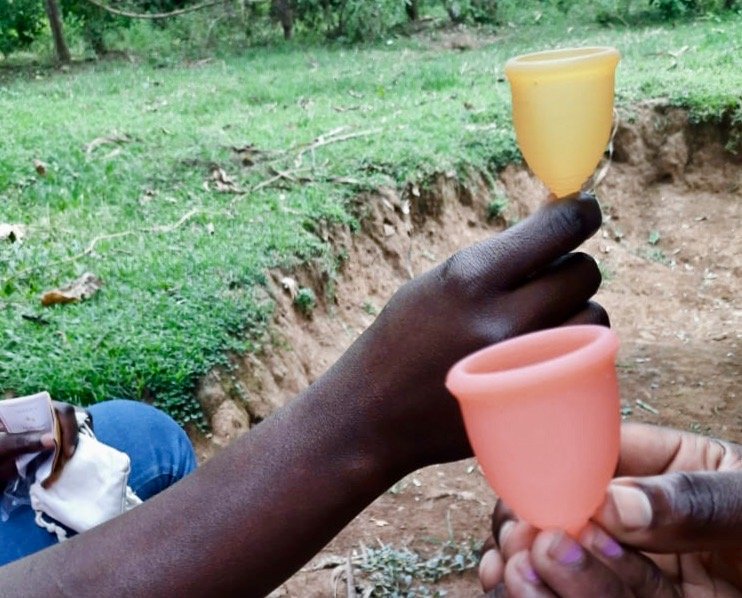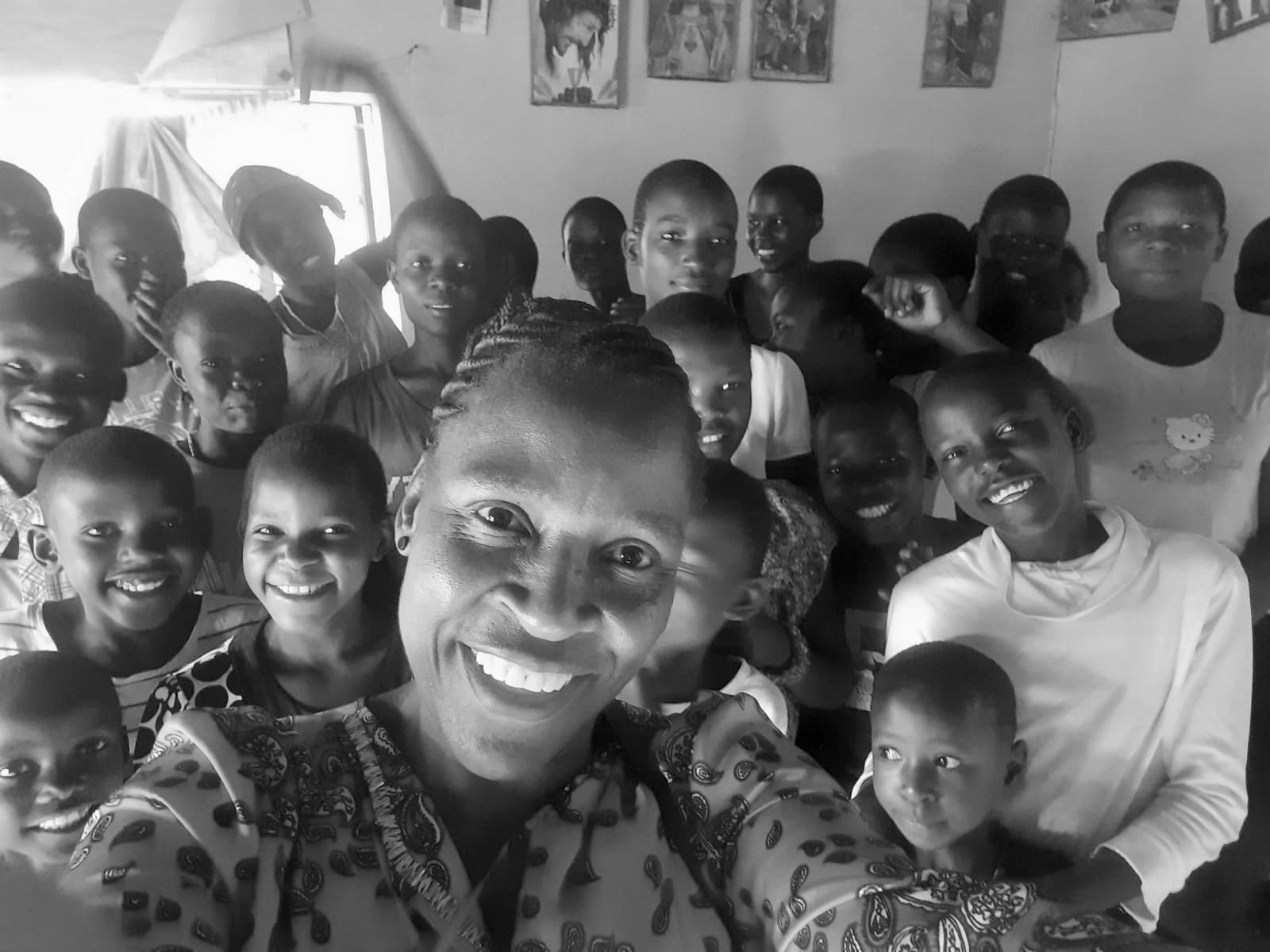Like many conversations between Carolyne and me, we discussed problems regularly while we sat under a mango tree, its branches swaying with ripe fruit. The wide shady area offered respite from the hot Kenyan sun. As we leaned against the grey plastic table, sipping late afternoon tea, all our brainstorming came to nothing. Better we be distracted by the low hanging juicy bounty that bobbed around our heads than to continue throwing ideas into the humid wind.
I pitched my question one more time, “How do we help the girls stay in school?”
Carolyne shrugged. “It is always a difficult time of the month for girls. Inadequate facilities at the schools, no money for pads, and the washable ones the mamas made wear out too quickly. Also, the shame heaped on menstruating teens feels distressing.”
We regularly examined the sad situation of why the older girls missed weeks of class because of their menstrual cycles. Regardless of our dialogues, sustainable solutions never evolved.
Young women in developing nations struggle with the crisis of “period poverty” - not having access to sanitary items or hygienic bathrooms during their menstruation and enduring the humiliation associated with it. This hidden poverty is not a popular subject in Christian exchanges. It receives little attention, regardless of the negative affect on girls’ education and self-image. Visualize for a moment that your daughter had to miss at least one week of each month because she lacked supplies to serve her during the school day. Imagine her being stigmatized by a natural phase in life.
We had talked with the girls’ mammas. We had talked with the girls. We had all talked together. We even introduced the idea of menstrual cups, but there was hesitation. The mammas continued sewing washable pads, and we let the idea of menstrual cups go - until now.
After years - yes, years - of prayer and consideration, the doors opened with a Kenyan-based company that manufactures menstrual cups. They offered a “buy one-donate one” program. At this point, I’m living in Colorado and Carolyne is in Kenya. No more long talks under shade-giving mango trees. We video-chatted through WhatsApp relentlessly. The plan took effort, energy, time and finances. Thankfully, God provides all that was needed to start a project that catered to girls in secondary education level and it focused on three goals:
1. Educate the girls and their moms well about the new idea of menstrual cups.
2. Evaluate if the program was successful, and if it could be improved.
3. Make sure we came alongside these women and listened to their stories
while sharing that Jesus cared about their situations.
Carolyne and her assistant managed the 1st goal by reaching out to a friend who supervised a girls’ program in a western low-income urban area. The program encouraged girls who struggled to stay in school because they lost hope as they fell behind in their studies. Carolyne and her assistant traveled to the program’s center, carrying educational materials and products, along with the staple at every meeting - sweet tea made with warm milk. They visited with the girls, giving them time to share their difficult circumstances, offering them informed options, and of course - enjoying a hot cup of chai. They all parted with hugs and promises to get together at the next scheduled break.
Goal number 2 proved challenging. Evaluating a program in Kenya can be tricky because “saving face,” especially in a “donation program” is socially imperative. The sensitive nature of the menstrual cup project provided a perfect example that Kenyans running Kenyan programs affords an efficient method for assessments. AtL’s responsibility is to help equip Carolyne to fulfill God’s call on her life, not control the project. Her leadership ability and desire to serve with integrity makes our partnership work well. Ministry built on long-term relationships reveals that no one is chasing their own agenda. Trust builds the strong base.
Carolyne visited the girls during their school break and gently inquired about the cup’s effectiveness - what could change and what did they need now? Since Carolyne was a safe person who was well-prepared to question the girls without bias, they answered without reservation. She learned that this particular donation program needs to be more individualized according to each girl.
As we all know, pictures are worth a thousand words, so we’re happy to share photos with the participants consent. A gospel of care showed the Lord’s heart for the girls. He is their identity and in their destinies, including attending classes without concern. The project is just developing, but already changes futures for good. Vision takes unpredictable amounts of time. Commitment to sustainable ministry finds its foundation in friendship – between God and each other.
AtL’s Board sends God’s blessing to our Kenyan Coordinator - Munguaku bariki, Carolyne. We are together - Tuka pamoja.
If you would like more information, or want to donate toward this project, please visit AmongtheLeast.org or email mlthauger@gmail.com.
Ever hopeful,
AtL Field Directors, Mark and ~Lisa Hauger
